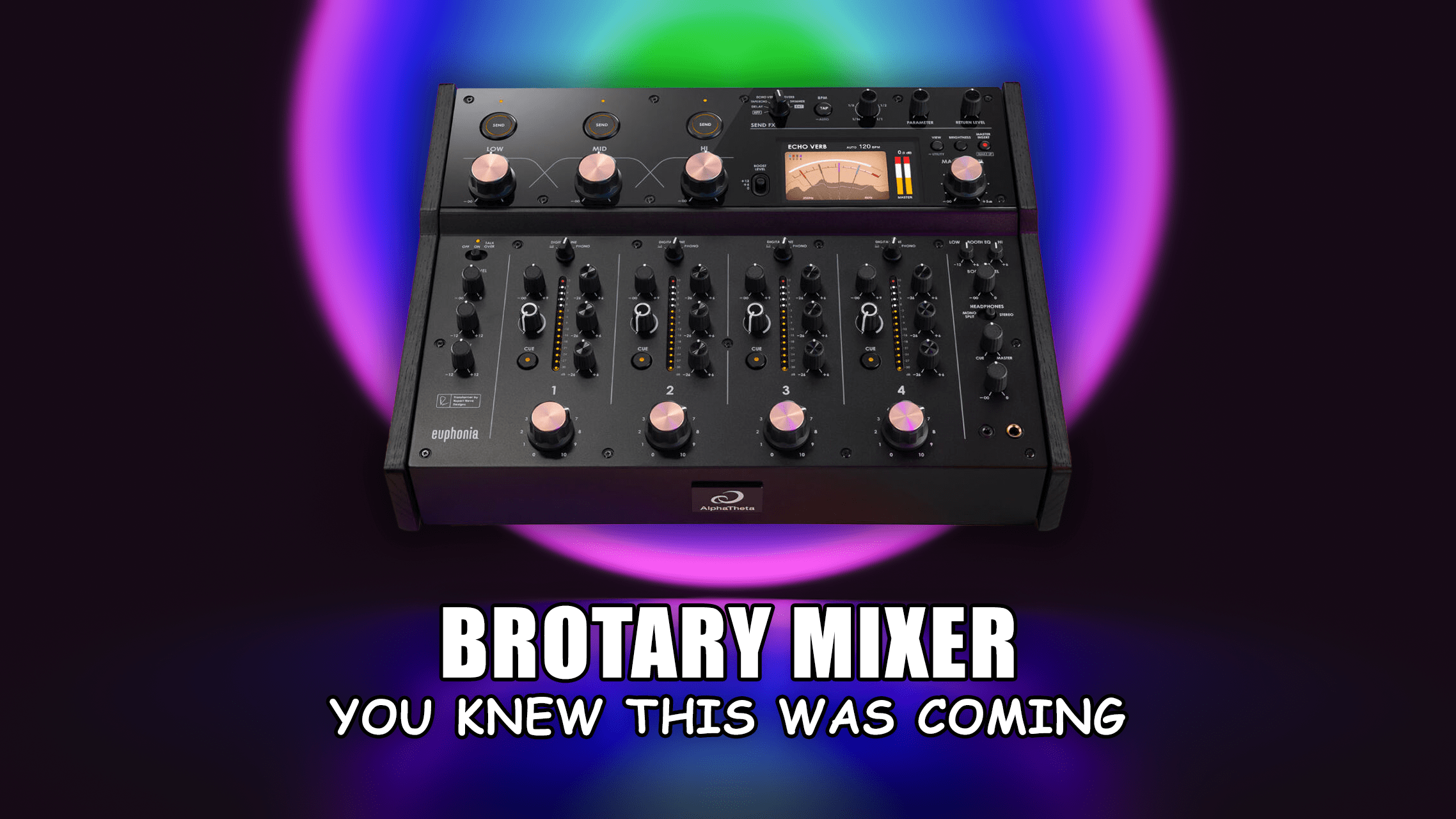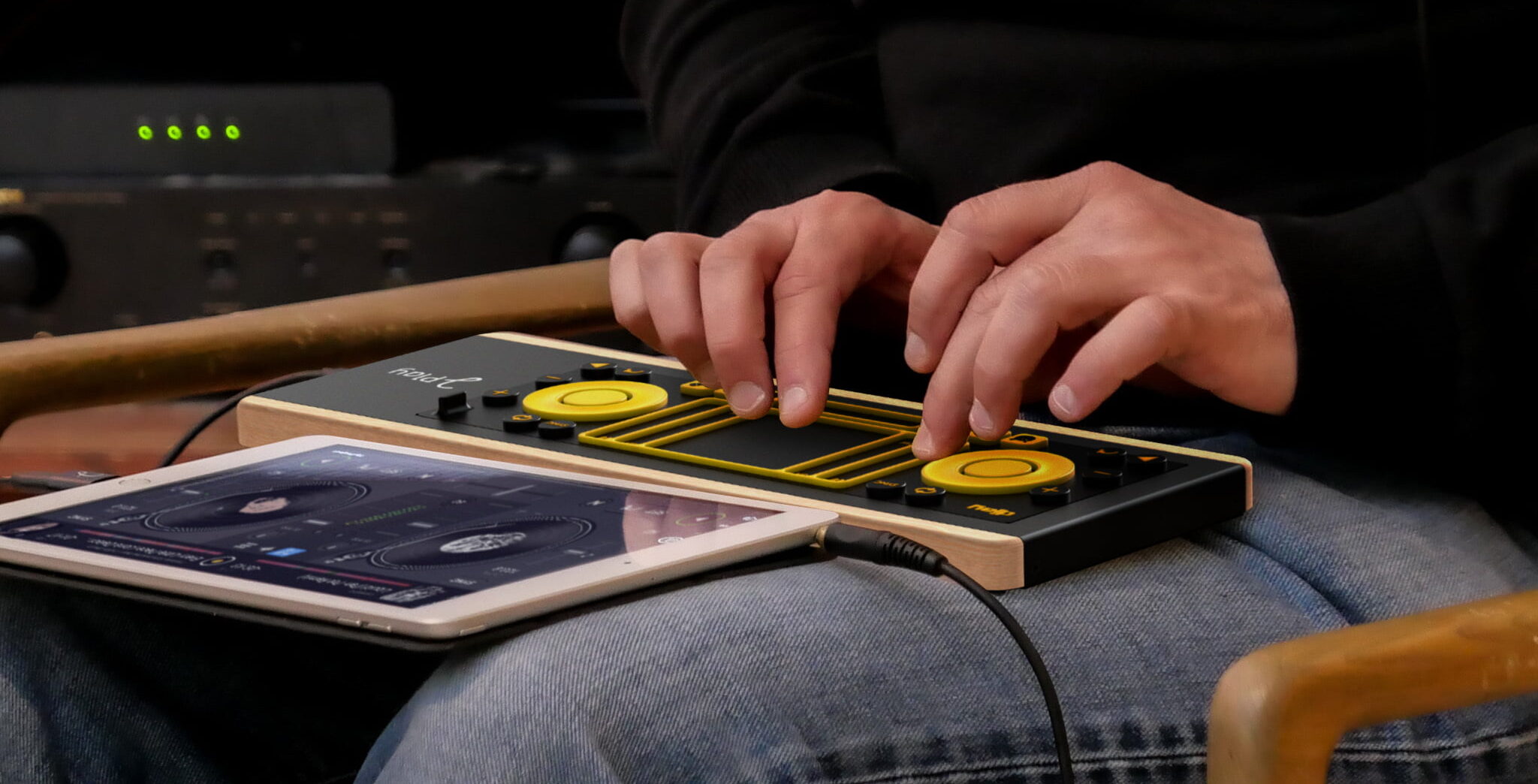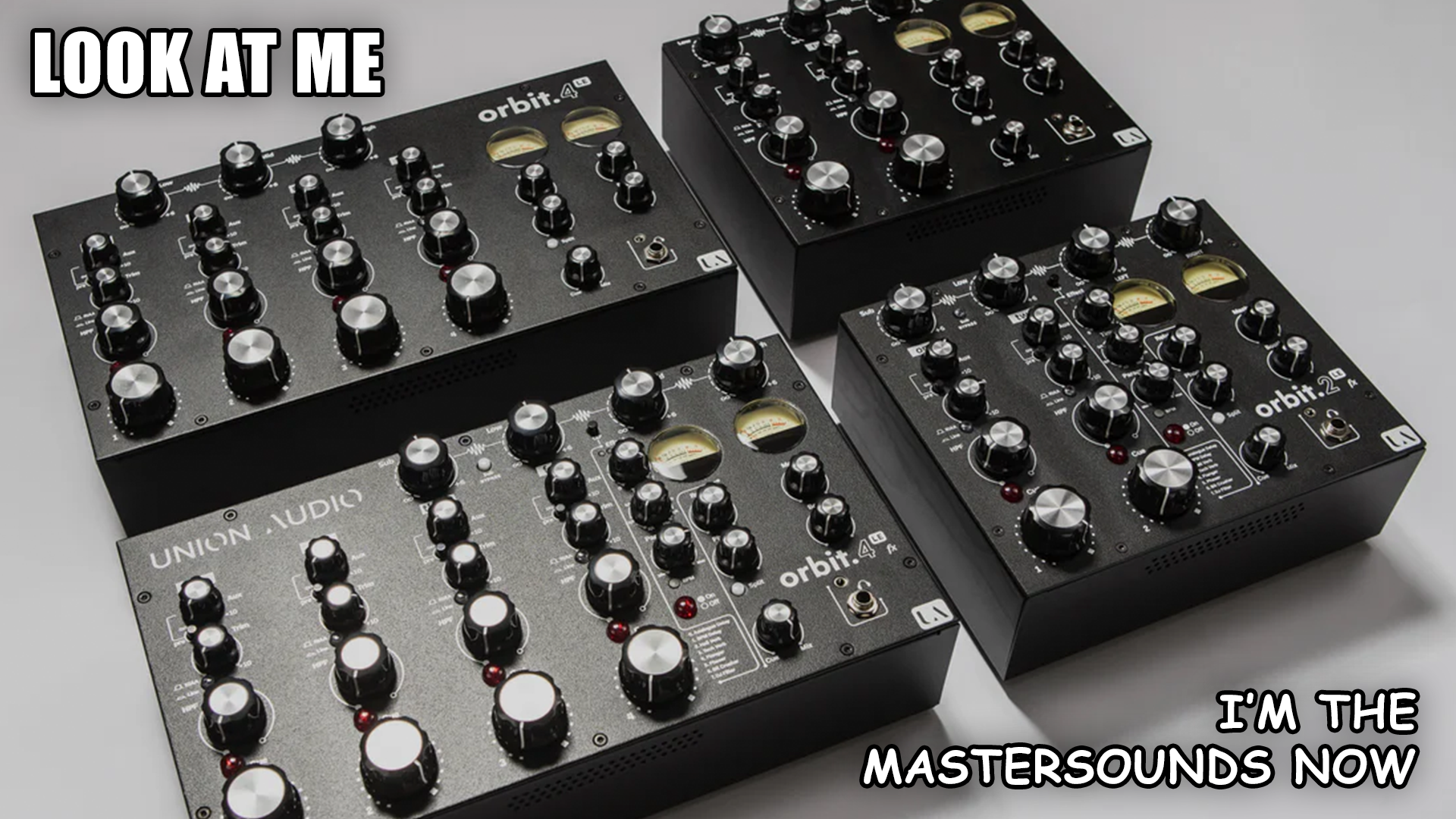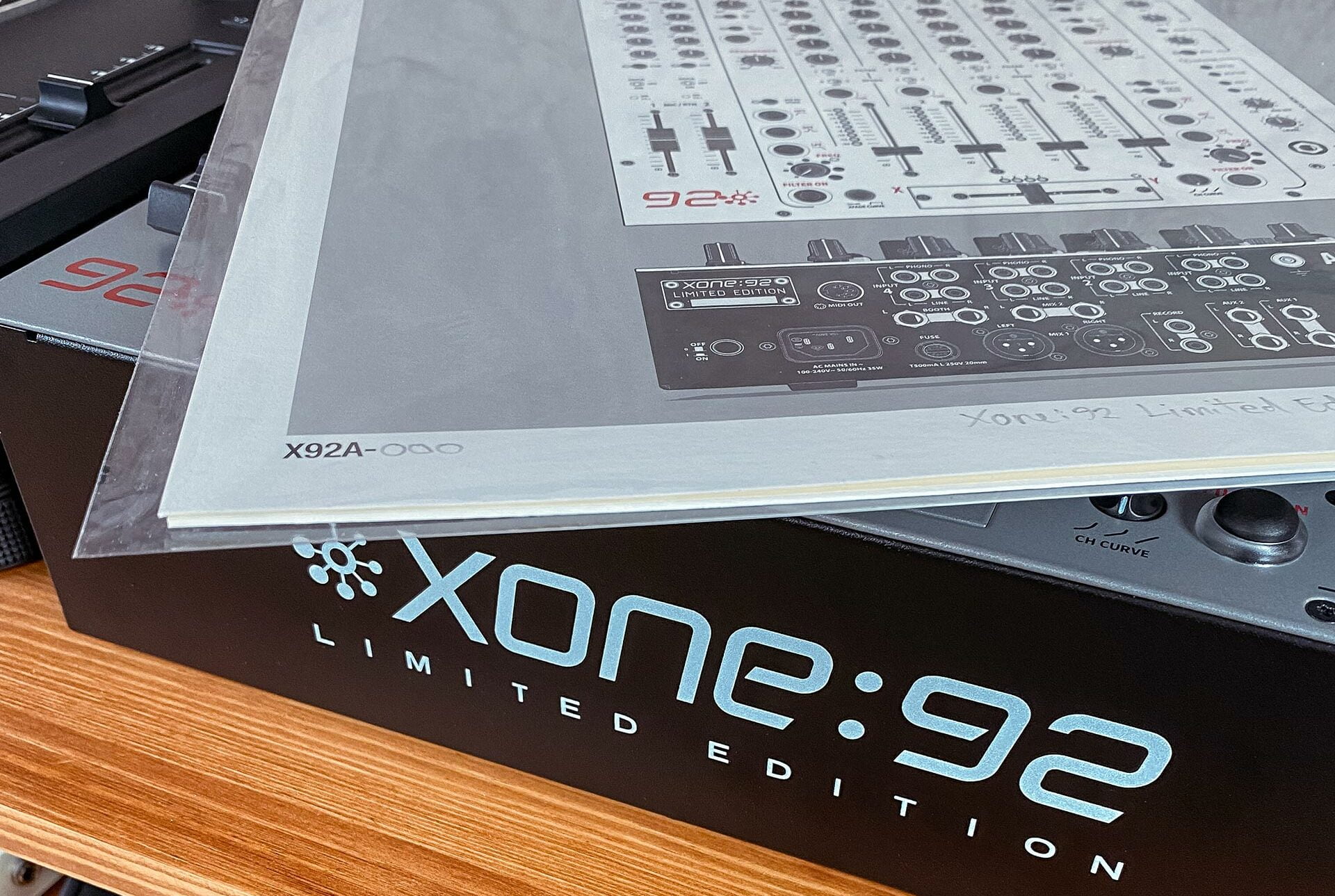Pioneer DJ’s parent company AlphaTheta continue their stomp through the DJ technology world with the release of the £3,250 euphonia four channel rotary mixer. You can read all about it on their official announcement news post, but this is a doozy, and just like everything else from AlphaTheta-the-DJ-technology-brand, completely different from everything before it. Their catalogue is going to be wild.
- Four audio channels with both phono and line in, three-band EQ, send, and a rotary volume encoder.
- Old school isolator for the master
- Fully digital signal like their club mixers.
- Five built in Pioneer DJ effects with send-return loop, as well as both send-return and master insert external effects loops.
- Digital screen for level meters and ‘energy visualiser’ which is basically a fancy spectrum analyser.
- Serato DJ and rekordbox ready (and Traktor/djay/VDJ since those are basically open to external hardware)
My take
Outwardly, the mixer kind of reminds me of the StpVx Phoenix mixer that was meant to be a sort of resurrection of VESTAX. That also had a high price tag (something like £6,000) and had the option for rotary controls, with a similar design aesthetic.
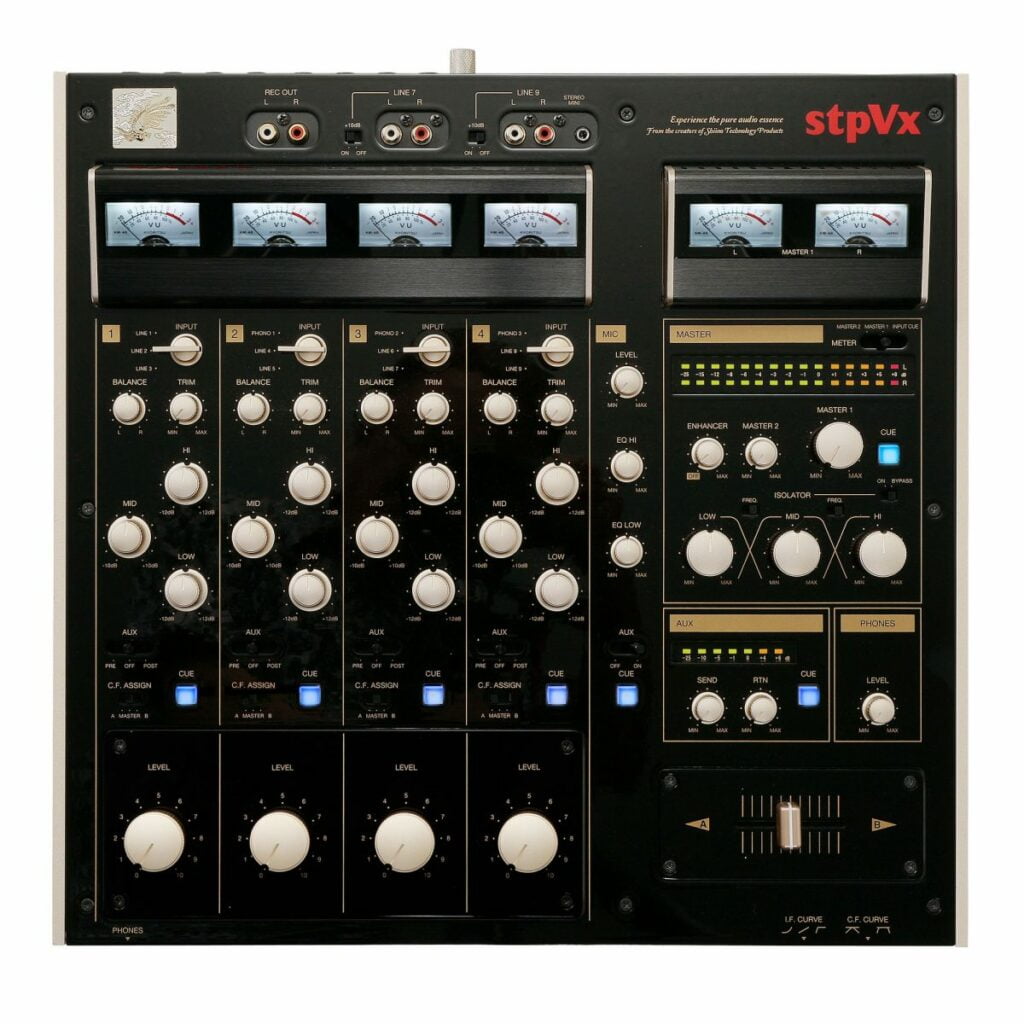
The mixer is very much designed for a vintage club workflow, with the isolator and rotary volume control, as well as the retro styling. There’s also no crossfader as you’d expect from a boutique rotary mixer such as this. The isolator section has the traditional chunky knobs which look like a lot of fun. Interestingly, there’s no channel split-filter we’ve come to see as standard on most modern mixers, and the isolator looks to be on the master output.
The real question is who is this aimed at? This seems to come up with every one of the AlphaTheta products. The euphonia seems to sit in a weird existence where it won’t be appealing to those who like Pioneer DJ club mixers, and would put off the rotary mixer community by having a digital signal path. The marketing material claims there’s a part of the signal chain to add analogue warmth.
This transformer circuit, tuned specifically for the euphonia, adds harmonics to the music and creates a glossy and energetic sound that’s smoother for mixing.
It kinda smells like audiophile language to appease the analogue rotary fanbase, but you can see how they designed the signal path below.
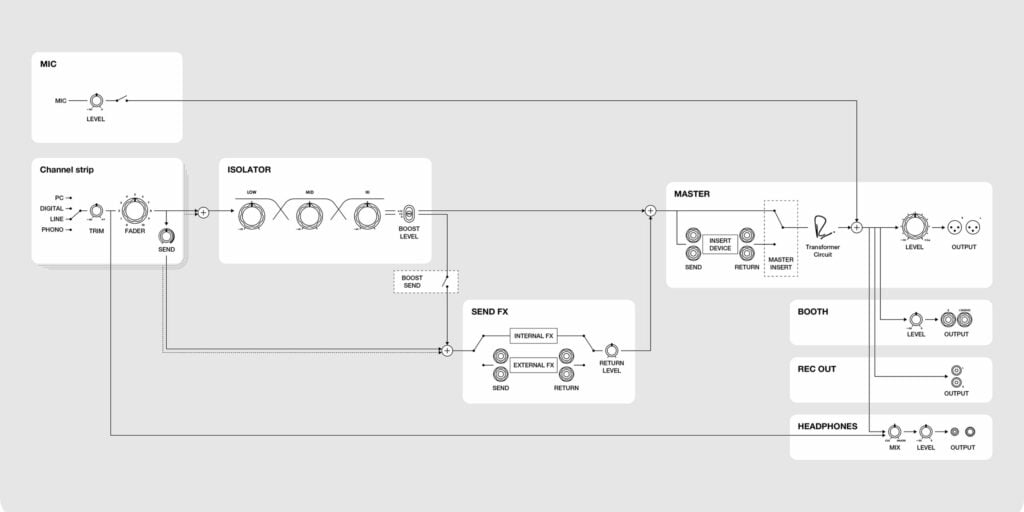
I’ve said it before, but at this level of audio hardware, the differences in how things sound are negligible, and any argument of sound quality or even analogue warmth is mostly arbitrary. You’re more likely to have a weak point in the signal chain elsewhere than the mixer bottlenecking the sound ‘quality’. Doubly so in a live environment. Additionally, Pioneer DJ have worked hard to continually push the sound in their digital audio. The DJM-900 mixers were a good leap past the 800, and the V10/A9 go even further. These days, there’s very little to complain about their mixers beyond the price tag, and they’ve certainly closed the gap with the competition renowned for analogue sound.
Speaking of price… yes, this is a very expensive mixer. Even the V10LF is around £200 cheaper. But that’s just how it is. Hopefully it finds its audience, because this is a nice looking mixer that I could see at home in boutique record shops, high end listening bars, and rich people’s loft apartments with bespoke DJ furniture and glamorous city views.
One thing to note: the AlphaTheta website specifically labels this as the black model, so perhaps we can expect more colour options in the future? Brushed steel for that truly retro 70s hifi aesthetic? Aged brass for steampunk fans?

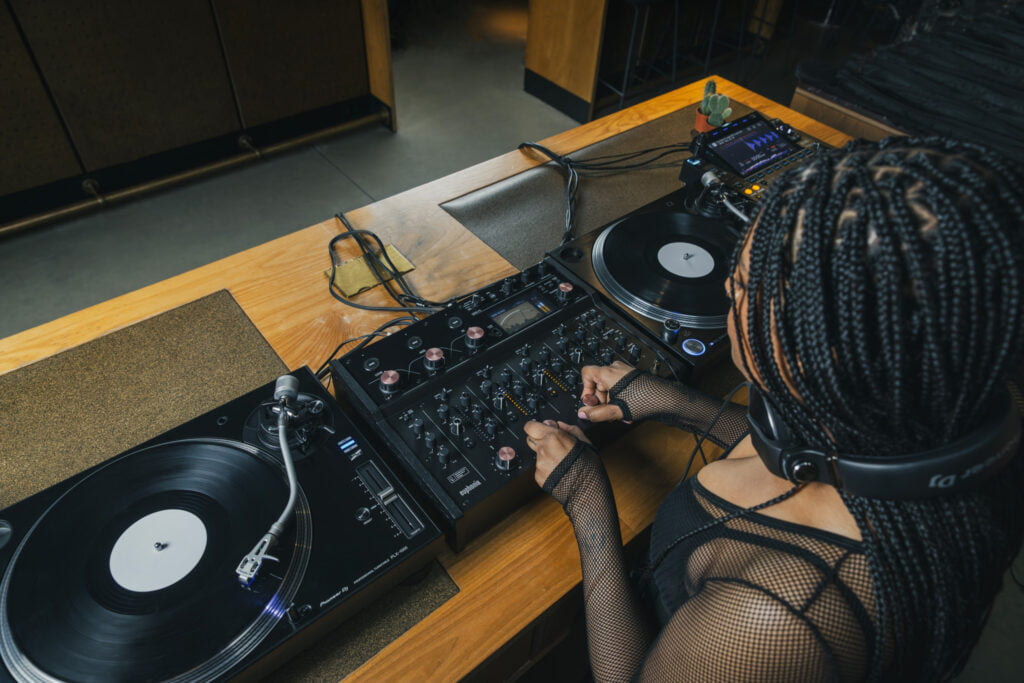
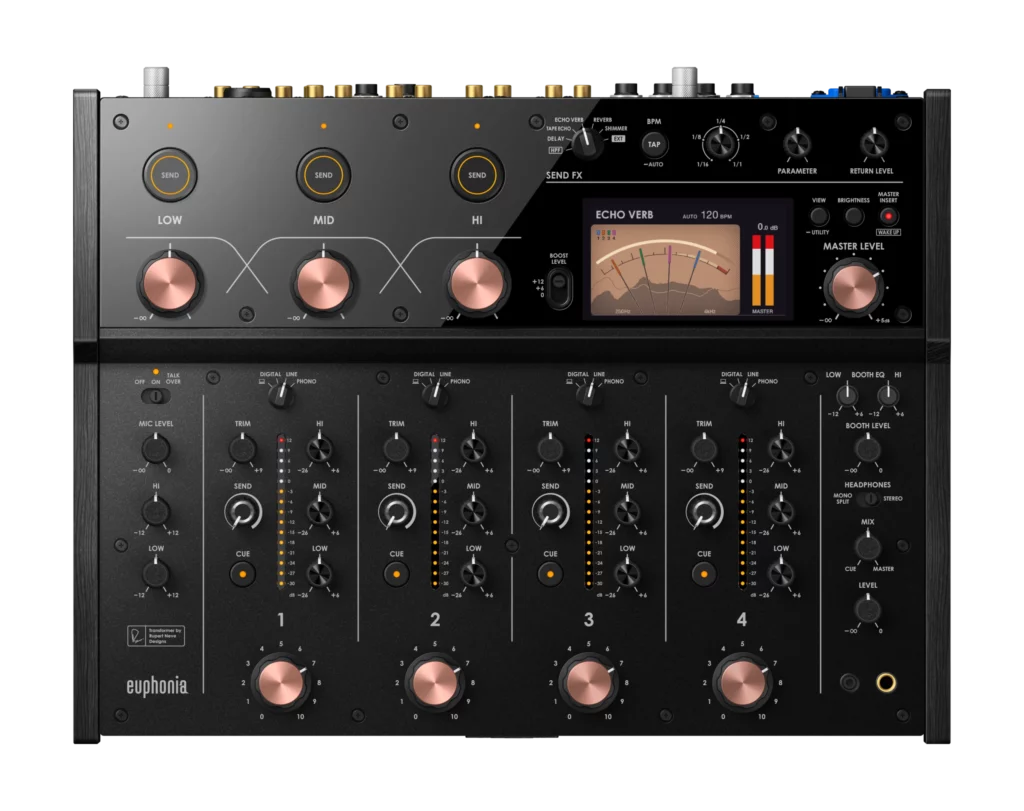
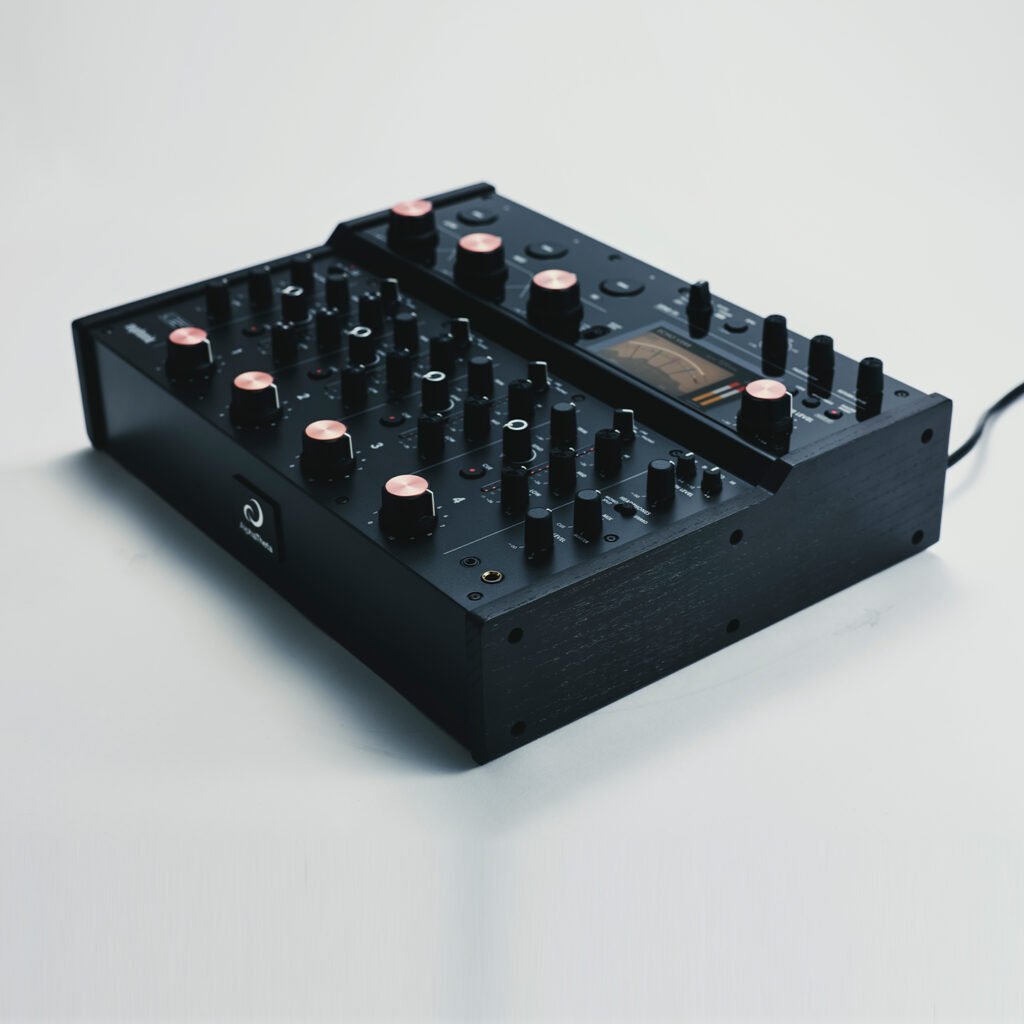
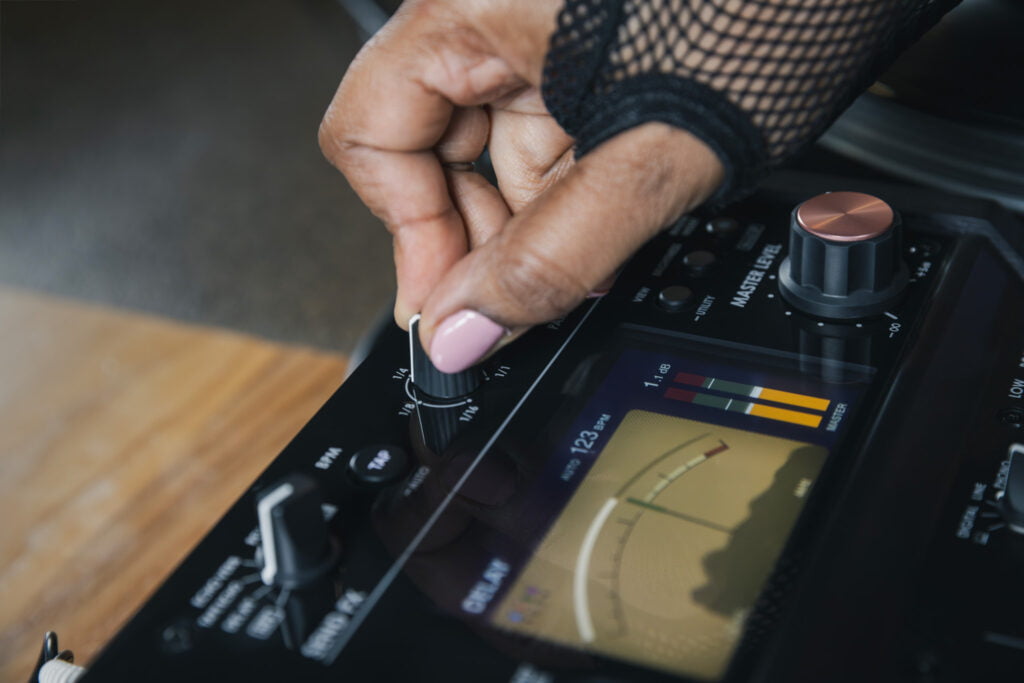
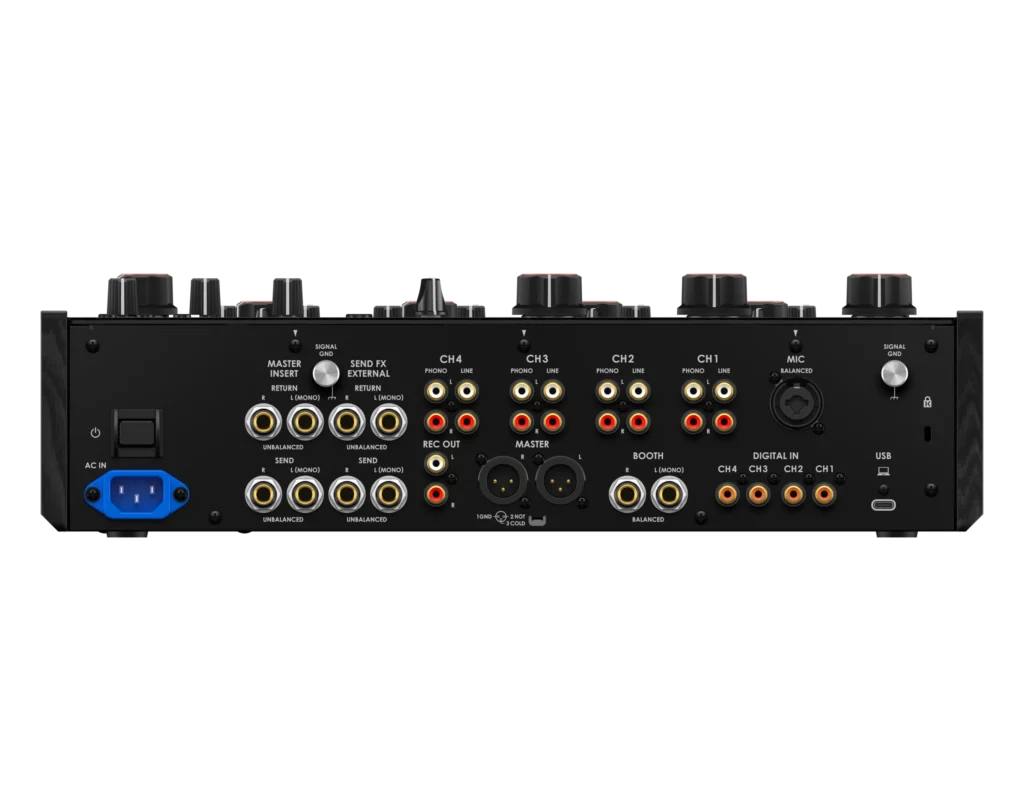
The AlphaTheta euphonia is out soon and has a SRP: €3,799/£3,249/$3,799.
